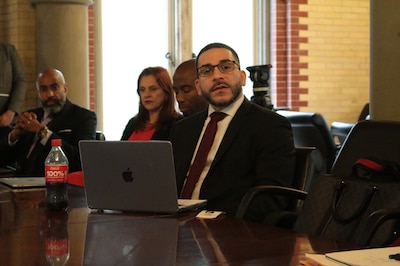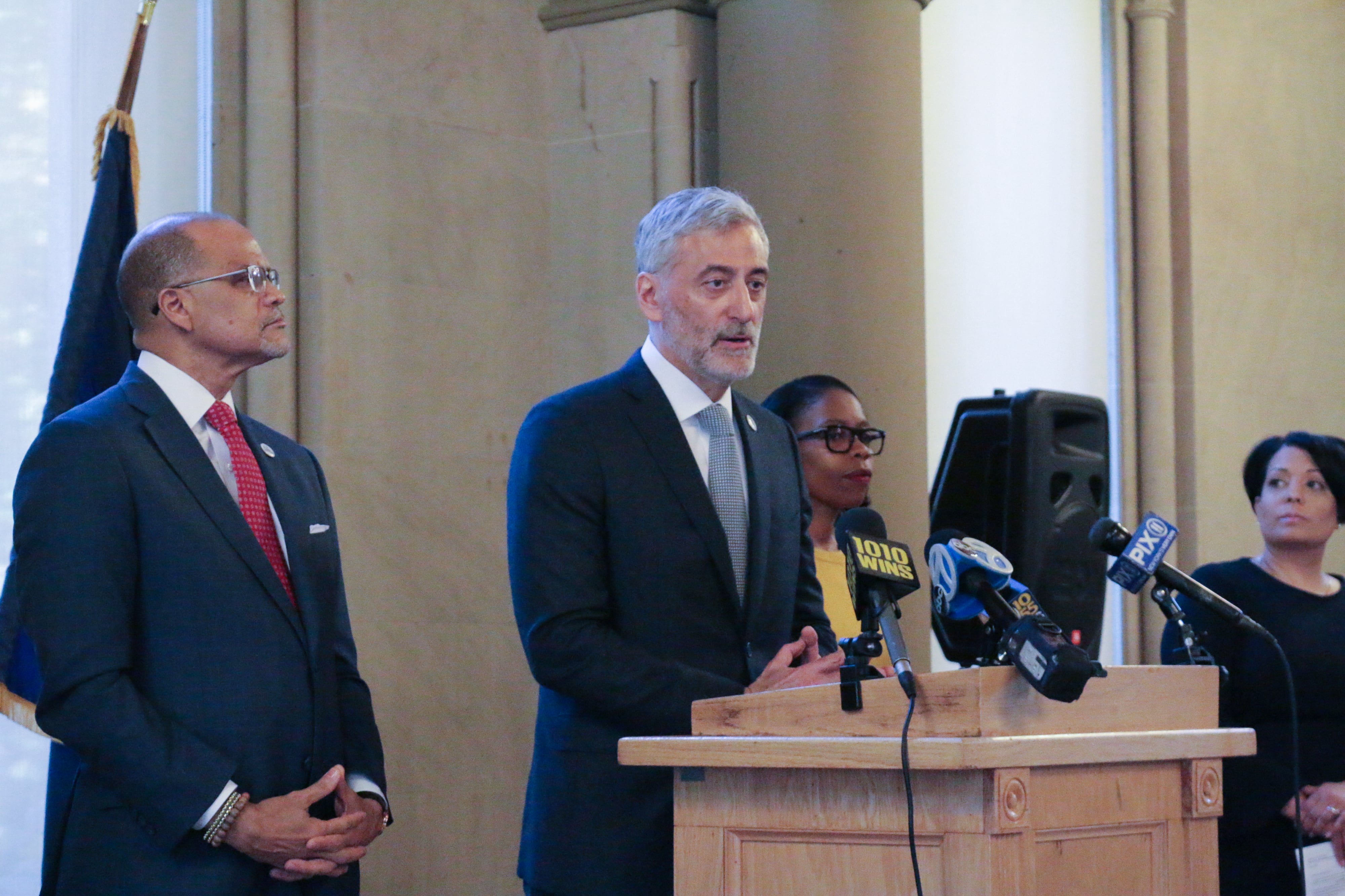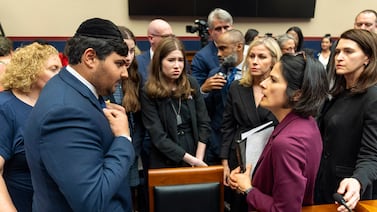Sign up for Chalkbeat New York’s free daily newsletter to keep up with NYC’s public schools.
A top Education Department official said on Thursday that schools would not have leeway to skirt a new reading curriculum mandate based on student demographics.
“There’s no difference in how we’re implementing based on demographics of kids,” First Deputy Chancellor Dan Weisberg said after a Brooklyn superintendent suggested otherwise. “That’s actually a pretty disturbing suggestion.”
New York City is requiring all of its elementary schools to begin using one of three reading curriculums, Chancellor David Banks’ signature education initiative to improve literacy rates.
But Chalkbeat reported Wednesday that District 15 Superintendent Rafael Alvarez recently told families that his district would have more flexibility than District 19, which is also in Brooklyn. Most children in East New York’s District 19 are Black or Hispanic and come from low-income families. About 38% are considered proficient in reading based on state test scores. By contrast, fewer than half of students in District 15 — which runs from Cobble Hill and Red Hook to Park Slope and Sunset Park — are Black or Hispanic or live in poverty. Roughly 63% are proficient readers.
“We have a different community,” Alvarez said in response to parent concerns about the curriculum mandate at a Community Education Council meeting last month. “It’s the reason why there’s flexibility around how we’re using the curriculum — because we don’t have the same demographics where all of our kids need it verbatim with fidelity every day.”
Asked about those comments, top education officials said that there may be certain situations where teachers take different approaches to implementing the curriculum materials but stressed student demographics would not play a role.
“There’s all kinds of areas where we need our educators, our teachers, and our principals to customize for their kids,” said Weisberg, the Education Department’s second-in-command.
Reaction to Alvarez’s comments underscores the tension superintendents are facing, as some parents and educators raise concerns that the new mandates will brush aside materials that make their schools distinctive, including project-based approaches or other teacher-created curriculums.
Superintendents are directly appointed by Banks, who has empowered them to hand down curriculum mandates for the schools they supervise. Some have issued directives in a wider range of grade levels than initially required by Banks’ literacy overhaul.
Alvarez, who attended the press conference, did not directly address his earlier comments about student demographics, but said he is “100% on board” with Banks’ literacy mandate.
The approach in District 15 might look different from District 19 because leaders there began implementing a standardized curriculum before the latest mandate from Banks, Alvarez contended, and it will take teachers time to get used to new materials. He also stressed that district leaders are looking “to find ways to integrate project-based learning” into the newly mandated curriculums.

Banks also did not wade directly into Alvarez’s comments, though he said the superintendent is doing “an amazing job.”
Some families have called for waivers to the new curriculum mandates, and Education Department officials initially suggested that a small slice of schools with high test scores could be exempt.
Although some schools expressed interest in a waiver, officials said school leaders ultimately decided to stick with the mandated reading curriculums. A department spokesperson did not share details about that process, including which schools sought exemptions or what criteria the city might use to grant them.
For his part, Banks said he was disinclined to entertain exemptions, though he hinted he may consider them for the highest-performing schools.
“I don’t take well to principals — anybody else — who will say to me, ‘You know, we want an exception because we’re at 55% [reading proficiency], and our colleagues at 35%,’” Banks said. “You don’t get an award for that. We all need help — we all need to continue to support one another.”
The city is also preparing to launch an advisory group to offer feedback to curriculum companies based on schools’ experience with the materials, Deputy Chancellor Danika Rux said on Thursday, adding superintendents have been meeting regularly to discuss implementing the new curriculums and best practices.
The curriculum providers “make a whole lot of money from New York City public schools — and so we believe that they should listen to us,” she said.
Alex Zimmerman is a reporter for Chalkbeat New York, covering NYC public schools. Contact Alex at azimmerman@chalkbeat.org.






